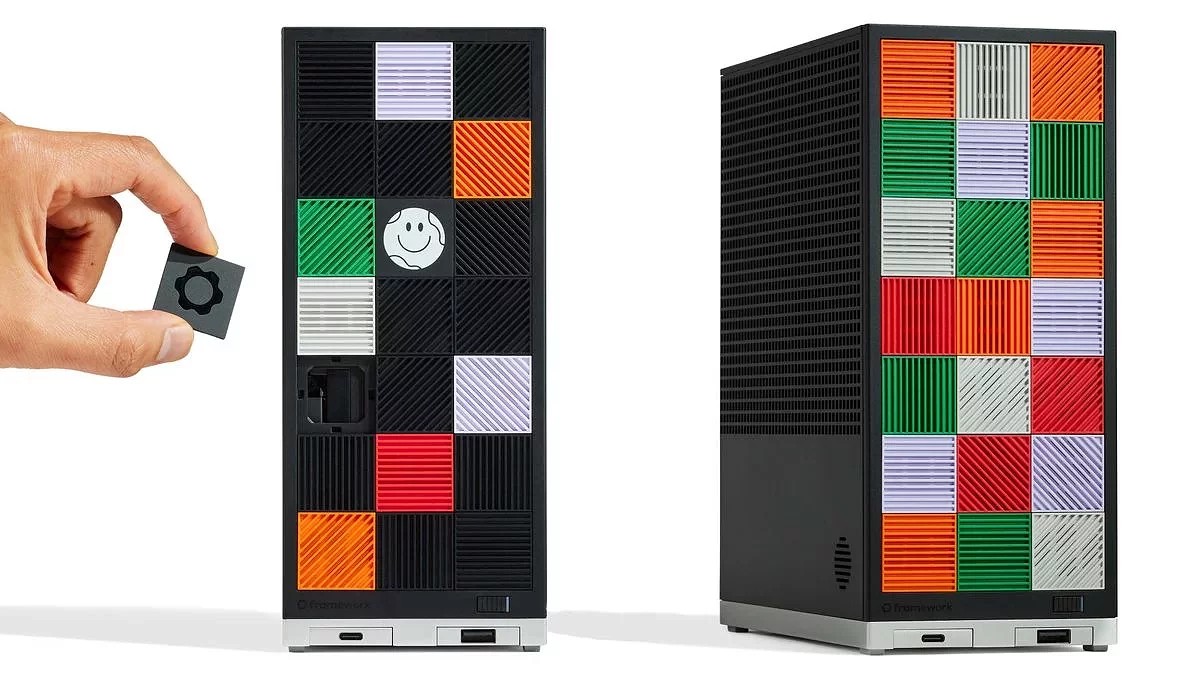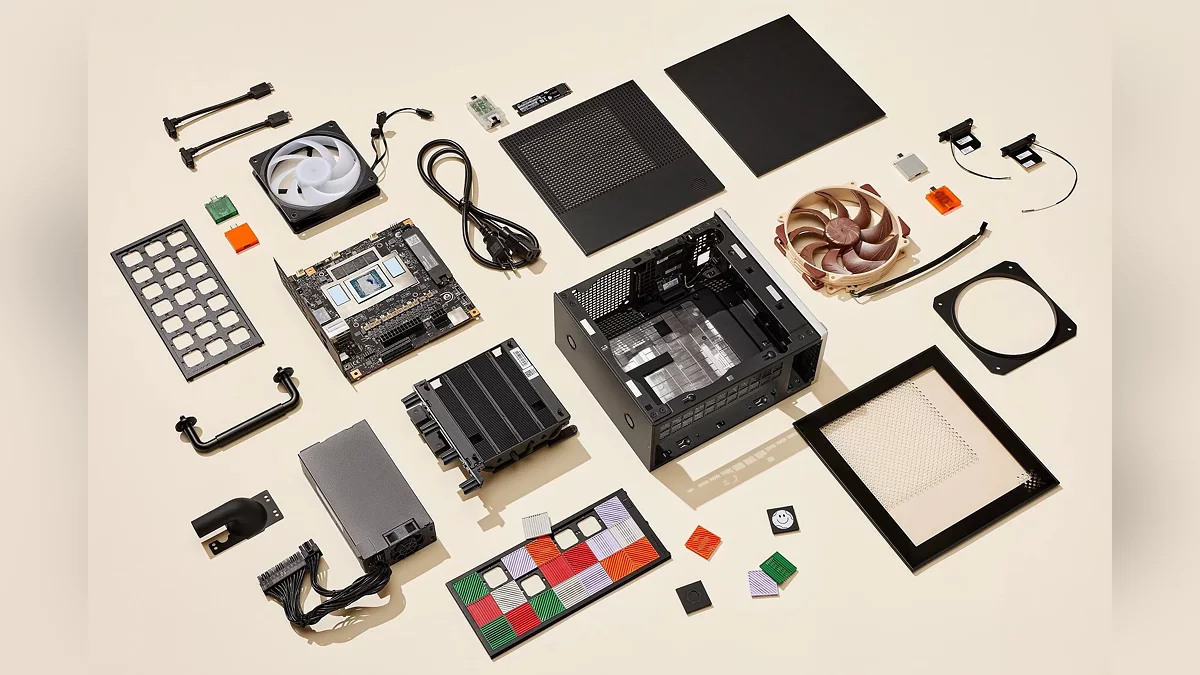Framework Unveils a Powerful Mini-PC with 128GB RAM

Framework is making a bold foray into the world of desktop systems. The new Framework Desktop isn’t just a compact PC—it’s a technological challenge to giants like Apple and NVIDIA. Housed in a 4.5-liter chassis (roughly the size of a hefty encyclopedia), it conceals the power of a 16-core AMD Ryzen AI MAX 395+ processor paired with up to 128GB of lightning-fast LPPDDR5X memory.
At its core are mobile AMD Strix Halo chips, manufactured using a 4nm process. The top model, Ryzen AI MAX 395+, boasts 16 Zen5 cores and an integrated GPU featuring 40 RDNA3.5 compute units (2,560 stream processors). Not only does it outperform Apple’s M4 Pro in multithreaded tasks, but it also challenges entry-level discrete GPUs. In synthetic benchmarks, the iGPU delivers performance close to that of an NVIDIA RTX 4060, raising questions about the necessity of a separate graphics card in such compact builds.
Staying true to its brand DNA, Framework’s PC chassis supports interchangeable 3D-printed panels—allowing owners to craft a unique design or even integrate touch-sensitive elements. Internally, the system is equally versatile: it offers two NVMe PCIe 4.0 slots (supporting up to 32TB total), Wi-Fi 7, and an optional upgrade to 128GB of RAM—a record for systems of this size. Despite a processor TDP of up to 120W, Framework’s engineers, in collaboration with Cooler Master and Noctua, have developed an all-in-one cooler that operates at impressively low noise levels (under 25dB under load). Power is delivered by an integrated 400W FSP power supply.
The entry-level configuration with the AI MAX 385 (featuring 8 cores and 32GB RAM) is priced at $1,099 (approximately 95,000 rubles) for the base version—$300 cheaper than the entry-level MacStudio. The top-tier model, at $1,999 (around 173,000 rubles) with 16 cores and 128GB RAM, is positioned as a tool for AI developers and 3D artists. For comparison, PCs with NVIDIA AI of similar power would cost twice as much. Most notably, Framework promises long-term support: users will be able to upgrade the processor to future generations of Strix Halo without needing to replace the motherboard.
Shipments are set to begin in Q3 2024, with pre-orders available starting today. However, experts recommend waiting for further testing—the claimed iGPU performance still needs to be validated in real-world gaming and applications. If these promises hold true, the Framework Desktop could revolutionize the compact workstation market, potentially even challenging Apple in this segment.
-
New Minisforum AI X1 combines power and portability for gaming and work
-
CES 2025 highlights Clink-X xCraft, a mini-PC with custom design options
-
Announced Office Mini PC with Built-In Touchpad for Just $109
-
Japanese Company Unveils Pocket-Sized Mini Mouse
-
Aoostar GT37 Unveiled — A Mini PC with Ryzen AI9 and LPDDR5X 8000 MHz


